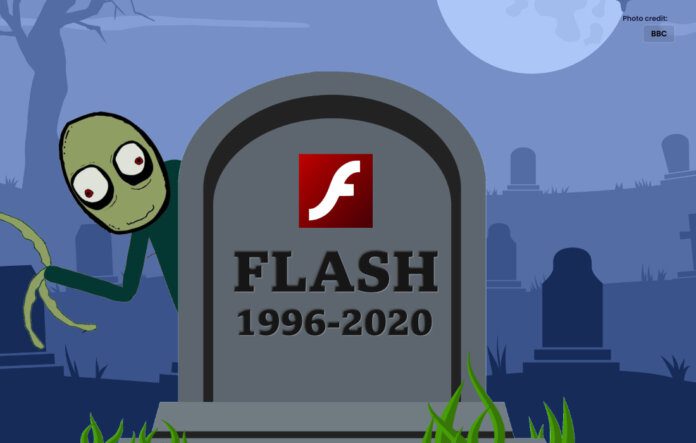Adobe Flash Player, a two-decade pioneer, transformed web multimedia.
Introduction
It enabled the creation of interactive animations, games, videos, and rich internet applications, captivating users across the globe. However, as technology evolved, so did the web, and today we bid farewell to Adobe Flash Player. In this blog, we’ll explore the rise and fall of Flash, its impact on the digital landscape, and the reasons behind its eventual demise.
Flash’s Early Days and Revolutionary Impact
In the late 1990s, as the internet gained popularity, Adobe Flash (formerly known as Macromedia Flash) emerged as a groundbreaking technology. It provided a platform for designers and developers to create visually stunning and interactive content that could be accessed across different web browsers and operating systems. Flash quickly became the go-to tool for web animation, online gaming, and multimedia experiences, ushering in a new era of dynamic websites and captivating user interfaces.
The Ubiquitous Flash Era
The widespread adoption of Flash made it nearly omnipresent on the web. Websites, ranging from entertainment portals to e-learning platforms, relied heavily on Flash to deliver engaging and interactive experiences. Also Flash animations, banners, and videos were commonplace, shaping the digital landscape and captivating users with their eye-catching visuals and interactivity. Flash-based games, such as those found on websites like Newgrounds and Kongregate, gained a massive following, spawning a vibrant indie game development community.
Security Concerns and Performance Issues
As Flash gained popularity, it also became a prime target for cyberattacks. Security vulnerabilities and frequent updates to patch them became a constant concern for users. Additionally, Flash was criticized for its resource-intensive nature, leading to performance issues and draining battery life on mobile devices. As the web evolved, HTML5, CSS, and JavaScript emerged as viable alternatives, offering more secure, efficient, and standards-based solutions for multimedia content.
Mobile Revolution and the Incompatibility Challenge
The advent of smartphones and tablets brought a new challenge for Flash. While Flash was originally designed for desktop browsers, it struggled to deliver the same seamless experience on mobile devices. Apple, in particular, famously decided not to support Flash on its iOS devices, citing performance, security, and battery life concerns. As mobile web browsing became increasingly prevalent, Flash encountered compatibility issues, hindering its ability to provide consistent experiences across different devices.
The Demise of Adobe Flash Player and the Rise of HTML5
The turning point for Flash came with major players in the tech industry openly declaring their intention to phase it out. Adobe itself acknowledged the changing landscape and announced the end-of-life for Flash by the end of 2020. Furthermore Web browsers, including Google Chrome, Mozilla Firefox, and Microsoft Edge, gradually disabled Flash by default and eventually removed support altogether. The shift towards open web standards, particularly HTML5, CSS, and JavaScript, offered a more accessible, secure, and efficient way to deliver multimedia content, rendering Flash obsolete.
Conclusion
Adobe Flash Player leaves behind a legacy of innovation, interactivity, and captivating web experiences. For years, it pushed the boundaries of what was possible on the web, allowing creators to bring their visions to life. However, as technology evolved, so did the demands for security, performance, and cross-device compatibility. The rise of open web standards and the challenges faced by Flash ultimately led to its decline. While Flash may no longer be an integral part of the web, its influence will continue to resonate in the history of digital media, reminding us of the dynamic and ever-changing nature of technology.
Find out more about https://rockedgeurdu.com/




